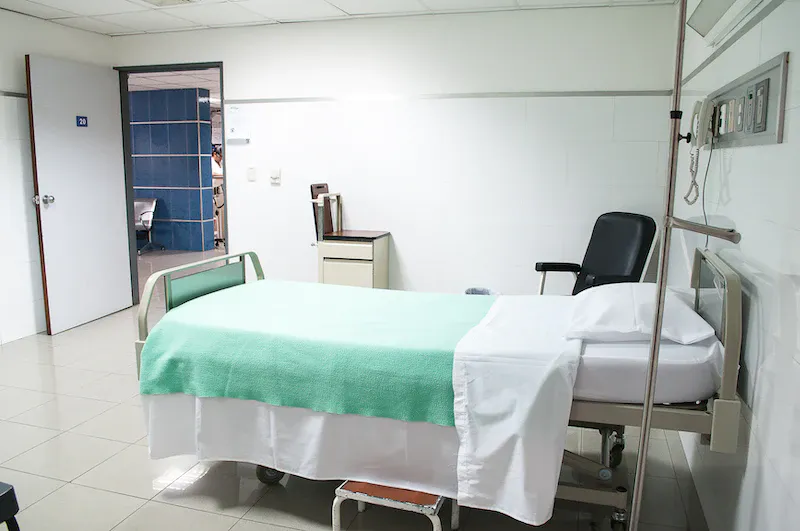Breaking the Silence: Overcoming Trauma and Redefining Masculinity

Overcoming Trauma: My Journey of Healing after Sexual Assault
Sexual assault is a devastating experience that can leave survivors feeling helpless, isolated, and traumatized. But with time, support, and a commitment to healing, it is possible to overcome the pain and reclaim your life. In this blog post, we will explore the journey of a survivor who found hope and healing after experiencing sexual assault.
The survivor’s story highlights the challenges of coping with trauma. After experiencing sexual assault, the survivor struggled with feelings of numbness and isolation. They found it difficult to communicate with friends and loved ones and lost interest in the things they once enjoyed. The survivor’s story is a reminder that healing is not a linear process, and it is okay to seek help and support along the way.
One of the challenges that the survivor faced was the pressure of traditional masculinity. As a man, they felt that they needed to be emotionally and physically strong enough to deter unwanted sexual advances and maintain composure in the most damaging of circumstances. This pressure made it difficult for the survivor to seek help and support from their loved ones, as they feared being seen as weak. The survivor’s journey highlights the importance of challenging traditional masculinity and creating a safe space for all survivors, regardless of gender.
Despite the challenges they faced, the survivor was able to find hope and healing by sharing their story and seeking help. They wrote an article for a university paper, which received an overwhelmingly positive response from the community. The survivor’s story touched with other survivors, and they found that people who hadn’t experienced sexual assault were better able to understand and empathize with their experience. This highlights the importance of breaking the silence around sexual assault and creating a supportive community for survivors.
In conclusion, healing from sexual assault is a journey that requires patience, self-care, and a commitment to growth. It is important to challenge societal norms around traditional masculinity and create a safe space for all survivors, regardless of gender. By breaking the silence and seeking help and support, survivors can find hope and healing and reclaim their lives.
Numbness, Isolation, and Self-Doubt: Coping with the Aftermath of Rape
Sexual assault can cause a range of emotional responses, including numbness, isolation, and self-doubt. The speaker in the video shares their personal experience of feeling paralyzed by mental numbness, which made it difficult to seek help or support from loved ones.
The speaker describes cutting themselves off from the outside world and becoming deeply apathetic towards everything in their life, including school, friends, and family. They also developed an unhealthy relationship with food, either losing their appetite or lacking the motivation to eat.
These coping mechanisms are not uncommon among survivors of sexual assault. To an outsider, the speaker’s behavior might not have seemed unusual. The pressure to maintain a certain image or identity, particularly for men, can make it challenging to seek help and support. The speaker felt that they had to be physically and emotionally strong, leading them to question their masculinity when they were unable to prevent or cope with the assault.
The speaker’s struggles were compounded by the fear of not being believed or facing blame for their own assault. They were also aware of the low conviction rates for sexual assault cases, which made them hesitant to pursue legal action.
It’s essential to recognize the range of emotions and coping mechanisms that survivors of sexual assault may experience. Providing a safe and supportive space for survivors to share their experiences can help them feel less isolated and more enabled to seek the help they need.
The Pressure of Masculinity and Its Impact on Male Survivors
The video highlights how traditional masculine norms can prevent male survivors from seeking help after experiencing sexual assault. The speaker shares his personal experience of feeling ashamed and inadequate for not being able to physically resist or emotionally cope with the assault. He believed that asking for help would make him seem weak and less of a man.
Many men are taught from a young age to be physically and emotionally strong, to never show vulnerability or emotion, and to be independent in times of crisis or pain. These traditional gender roles can lead men to suppress their emotions, avoid seeking help, and feel ashamed for being unable to meet society’s expectations of what it means to be a man.
Research has shown that when men’s masculinity is questioned or challenged, they are more likely to become aggressive and hold homophobic beliefs and attitudes. This suggests that there is an overarching issue with the male psyche today, where many men struggle with their identity and rely on outdated ideas of masculinity.
The speaker urges society to challenge these norms and hug more fluid gender roles. He believes that rejecting these outdated notions of masculinity and promoting gender equity can release men from the constraints of masculinity and allow them to rebuild their identities in a healthy, productive way.
It is crucial for society to understand how these societal norms can prevent male survivors from seeking help and work towards creating an environment that encourages men to seek support and speak out about their experiences. We must resist using phrases like “man up” or “be a man” when men show vulnerability and instead encourage them to hug their emotions, sensitivity, and vulnerability. By making these small changes in the way we interact with the men in our lives, we can help shape a new society where no one is left putting together their own pieces after experiencing sexual assault.
Seeking Help: The Challenges and Benefits of Sharing Your Story
Many survivors of sexual assault struggle with the decision to seek help and share their experiences with others. In the video, the speaker discusses the challenges and benefits of seeking help.
One of the biggest challenges is the fear of not being believed or being judged. The speaker shares how she was afraid to come forward because she thought people would think she was lying or that it was her fault. It can also be difficult to find someone who is understanding and supportive, as not everyone has experience with trauma or knows how to respond to it.
However, seeking help can also have many benefits. Sharing your story can help you process the trauma and begin the healing process. It can also provide a sense of validation and giving power, as speaking out about what happened can help to break down the shame and isolation that survivors often feel.
The speaker also emphasizes the importance of finding the right kind of help. This might mean seeing a therapist who specializes in trauma, joining a support group, or talking to a trusted friend or family member. It is important to find a safe and supportive environment where you feel comfortable sharing your experiences.
In addition to seeking help for oneself, the speaker also discusses the importance of advocating for change in the wider community. This might include supporting organizations that provide services for survivors, speaking out against victim blaming and shaming, and promoting education and awareness around sexual assault.
Overall, seeking help and sharing your story can be a challenging but ultimately enabling experience for survivors of sexual assault. It is important to find a supportive environment and to know that there is help available for those who need it.
The Importance of Gender Equity and Challenging Traditional Masculinity
The societal pressure on men to conform to traditional notions of masculinity can lead to a culture of toxic masculinity that reinforces harmful gender stereotypes and stigmatizes male survivors of sexual assault. Gender equity and challenging traditional masculinity are essential components in the fight against sexual violence.
Traditional masculinity often emphasizes aggression, dominance, and emotional detachment. These traits can create a hostile environment for male survivors of sexual assault, as they may feel unable to express vulnerability or seek help due to fear of judgment or emasculation. By challenging these traditional notions of masculinity, we can create a more inclusive environment where all survivors, regardless of gender, can feel safe and supported.
Gender equity also plays a crucial role in preventing sexual violence. By promoting gender equality and challenging harmful gender norms, we can create a culture that values consent, respect, and empathy. This can help break down the power imbalances that contribute to sexual violence and foster a society where everyone can feel safe and respected.
In the video, the speaker talks about the importance of challenging traditional notions of masculinity and promoting gender equity. He stresses the need for men to recognize their privilege and use their power to create a more inclusive and equitable society. He also emphasizes the importance of allyship, and how men can use their privilege to support and uplift the voices of marginalized communities.
Overall, it is essential to challenge traditional notions of masculinity and promote gender equity to create a more inclusive and supportive society. By doing so, we can help prevent sexual violence and ensure that all survivors receive the support and care they deserve.
Rebuilding Identity: Moving Beyond Traditional Masculine Traits
In the aftermath of sexual assault, male survivors often struggle to reconcile their sense of masculinity with the trauma they have experienced. Traditional ideas of what it means to be a man may conflict with the emotions and behaviors survivors experience. In order to move forward, it is important to redefine masculinity and allow for a more fluid and diverse understanding of what it means to be a man.
Some of the traditional masculine traits that may be challenged in the aftermath of sexual assault include:
- Stoicism: the idea that men should be tough, unemotional, and not show vulnerability. Survivors may struggle to express their emotions or seek help for fear of appearing weak or unmanly.
- Aggression: the idea that men should be dominant and assertive. Survivors may feel anger and a desire for revenge, but may also fear that expressing these emotions will make them seem violent or unstable.
- Sexual prowess: the idea that men should be sexually experienced and in control. Survivors may struggle with feelings of shame or inadequacy around their sexuality after experiencing sexual assault.
Rebuilding a sense of self after trauma involves letting go of these traditional masculine traits and hugging a more complex and inclusive understanding of masculinity. This can involve:
- Acknowledging and expressing emotions: survivors may need to learn how to express their emotions in healthy ways, whether through therapy, art, or physical activity.
- Building healthy relationships: survivors may need to learn how to trust others again and build relationships based on mutual respect and vulnerability.
- Challenging toxic masculinity: survivors may need to actively reject traditional ideas of masculinity that perpetuate violence and harm, and instead promote healthy and positive aspects of masculinity such as compassion, empathy, and vulnerability.
Rebuilding identity after trauma is a long and difficult process, but it is possible with time, support, and a willingness to challenge traditional ideas of masculinity. By hugging a more fluid and inclusive understanding of what it means to be a man, survivors can move beyond the confines of traditional masculinity and find new ways to define themselves on their own terms.
Advocating for Better Resources for Survivors on Campus
One of the most important things that universities and colleges can do to support survivors of sexual assault is to provide them with adequate resources. Unfortunately, many institutions fall short in this regard, leaving survivors feeling unsupported and alone.
One of the key resources that survivors need is access to counseling and mental health services. Survivors may struggle with a range of emotional and psychological issues, from anxiety and depression to post-traumatic stress disorder (PTSD). It is crucial that they have access to qualified professionals who can help them work through these issues and start the healing process.
Another important resource for survivors is a dedicated support group. Survivors may feel isolated and alone after their assault, and connecting with other survivors can be a powerful way to combat those feelings. Support groups provide a safe space for survivors to share their experiences, offer each other support, and learn coping strategies.
In addition, universities should provide survivors with clear information about their options for reporting the assault and seeking justice. This may include information about how to file a report with campus security or law enforcement, as well as information about the legal process.
Finally, universities should work to create a culture of respect and consent on campus. This includes educating students about what constitutes consent, as well as providing bystander intervention training to help students recognize and intervene in potentially dangerous situations.
By providing survivors with the resources they need and working to create a safer, more supportive campus environment, universities and colleges can help survivors of sexual assault heal and move forward with their lives.
Reshaping Society’s Approach to Sexual Violence: Small Changes Can Make a Big Impact
In the final segment of the video, the speaker emphasizes the importance of societal change in preventing and addressing sexual violence. They point out that many aspects of our culture, such as the normalization of gender-based violence in media and the lack of comprehensive sex education, contribute to a culture of sexual violence. However, the speaker also emphasizes that change can begin with small actions and individual efforts.
One important step towards preventing sexual violence is to teach consent education in schools and universities. This can include information on what consent looks like and how to navigate situations in which consent is unclear. Additionally, the speaker highlights the importance of bystander intervention training, which can provide individuals with the skills to intervene when they witness potentially harmful behavior.
The speaker also encourages the implementation of survivor-centered policies and resources on college campuses, such as accessible counseling services and support groups. These resources should prioritize survivors’ needs and provide a safe and inclusive space for healing.
Finally, the speaker emphasizes the importance of holding institutions accountable for their handling of sexual violence cases. This can include advocating for policy changes that prioritize survivors’ rights and hold perpetrators accountable, as well as supporting survivors in their pursuit of justice.
Overall, the speaker stresses that societal change is necessary in order to prevent sexual violence and provide support for survivors. By taking small steps towards change, we can create a culture that prioritizes the safety and well-being of all individuals.
Conclusion
Sexual violence is a pervasive issue that affects individuals of all genders, ages, races, and socioeconomic backgrounds. The journey to healing after experiencing such trauma is a difficult one, but it is possible with the right support and resources. Through the various subtopics discussed in this post, we have gained insight into the challenges faced by survivors of sexual violence and the ways in which we can work towards creating a safer and more supportive society.
We learned about the emotional toll of trauma, including feelings of numbness, isolation, and self-doubt that can often arise in the aftermath of an assault. It is important to recognize and validate these emotions and to seek help from professionals or trusted individuals in our support systems. We also learned about the unique challenges faced by male survivors and the pressures of traditional masculinity that can hinder their healing process.
Furthermore, we discussed the importance of sharing our stories and seeking help, as well as advocating for better resources for survivors on college campuses. By challenging traditional gender roles and promoting gender equity, we can create a culture that values consent and prioritizes the safety and well-being of all individuals.
Lastly, we learned that small changes in societal attitudes and beliefs can have a significant impact on reducing sexual violence. By encouraging empathy and understanding, holding perpetrators accountable, and promoting consent education, we can work towards creating a world where sexual violence is not tolerated.
It is important to remember that healing from sexual violence is a process that looks different for everyone. It is not an easy journey, but with the right support and resources, it is possible to move towards a place of healing and giving power. Let us all work towards creating a safer and more supportive society for survivors of sexual violence.



